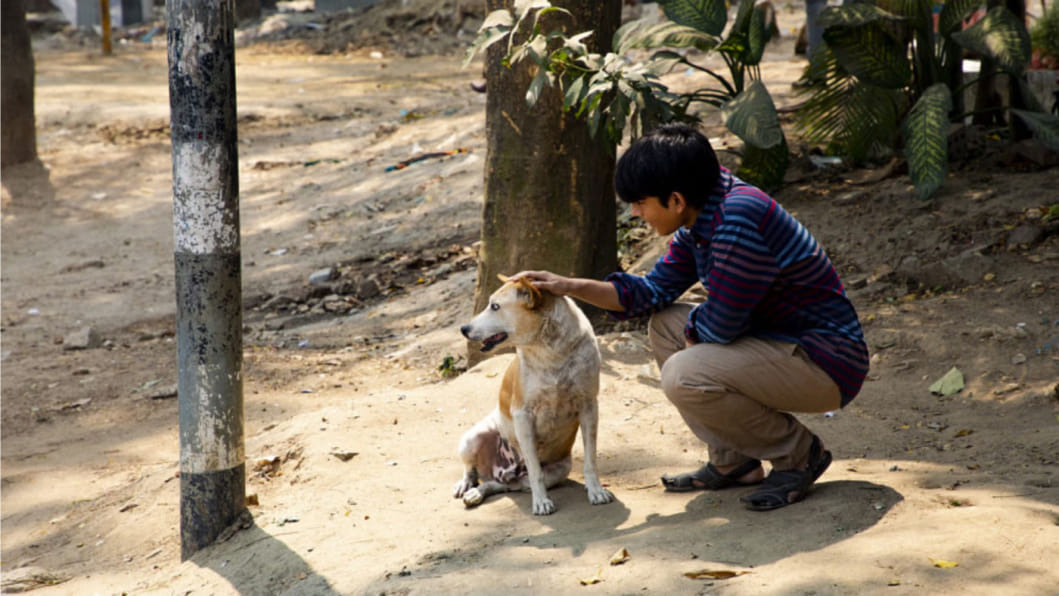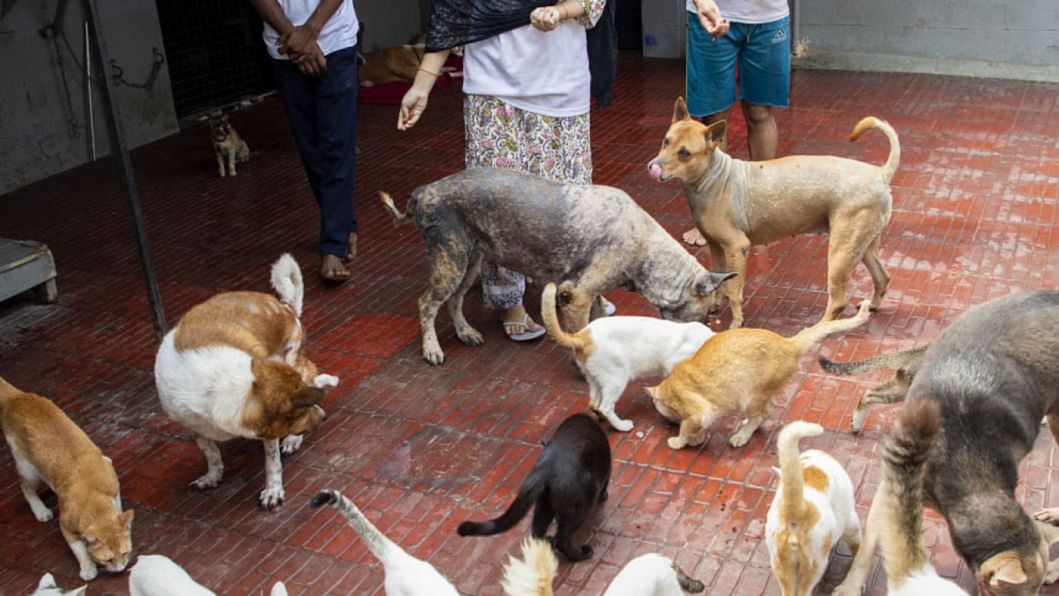While stray animals are seen all over Bangladesh and their suffering continues across the calendar, winter is an especially difficult time for them. For both cats and dogs, early winter is when the breeding season starts, and by mid winter, litters of kittens and puppies become a common sight on the roads.
Not all of these animals are helpless, however, as humanity prevails in many places where animal lovers do their best taking care of them. For winter, especially, it's important to keep some crucial factors in mind to make sure that the efforts stray animals receive from humans are actually helpful.
Protection from the cold
Naziba Basher, a pet owner in Dhaka who has taken care of many kittens, puppies, and recovering mother cats and dogs over the years, shared her experience and learning on the best way to help them in winter.
"Cats are heavily susceptible to cold related diseases. The best option to help them is to find them homes. After that, the first thing to do is ensure warmth. Heating pads, hot water bags or bottles, in a box, carton or basket will do the trick. However, if you are unable to bring them home, leaving boxes for them on the streets to find a safe place to give birth or to just stay warm is something that can help," she said.
Anabil Shamal Rahman, a pet owner who lives in Dhaka's Bashundhara R/A and regularly takes care of stray animals in his neighbourhood, shared his insights.
"Winter is not too harsh in Bangladesh, but for puppies, some steps can be taken. It's helpful to put some jute sacks on the ground where they can sleep. Puppies, especially, need to be given a place to sleep indoors in the winter. Sacks are the best option for keeping a dog's body warm too. People sometimes make them wear clothes that end up making it hard for them to move naturally," he said.

Dr KBM Saiful Islam, dean of the Faculty of Animal Science & Veterinary Medicine at Sher-e-Bangla Agricultural University, gave his advice to those looking to take care of stray animals in the winter.
"Strays can't be supported to the same level as pets can, but if possible, shelter needs to be provided. The shelter can be crude, but it must protect from cold winds and fog. This can be a garage, on the side of a wall, or built using old cartons. Bedding materials should be provided too, with pieces of cloth, hay, dry leaves, etc.," he said.

Food
"If you want to provide food for kittens, try to make sure you do not use cow's milk as it is toxic for them. Instead, try leaving out boiled chicken or fish for them," said Naziba.
On taking care of stray dogs in the winter, she said, "Dogs are a lot more resilient in this weather than cats but they do need extra care as they will probably have puppies following them around. If the mother doesn't get adequate food, she cannot produce enough breast milk for her babies. So, make sure to feed any mother dog you come across so that she can take care of her children."

"If you are going to feed your neighbourhood's stray dogs, try to find a regular time and location where you do it so they know where to show up for food," said Anabil.
According to Dr Saiful, animals aren't enthusiastic about drinking water in winter, plus natural sources dry up in this season. Stagnant water, on the other hand, tends to be dirty. "Containers with fresh water can be put out in certain spots in the neighbourhood, and the water should be changed regularly. Animals need food that has a lot of energy in it so they can produce heat for their bodies," he added.
Special caution for drivers
Anabil, who drives a car in Dhaka, mentions some specific points for motorists. "Puppies often walk onto the side or middle of roads. From the driving seat, they are difficult to see as they're small. Drivers need to be extra careful of this. If you're taking care of stray puppies, make sure to keep them as far away as possible from the side of roads. Before driving off in a rush, check to see if there's a kitten or a cat sleeping inside the engine or under one of the wheels. Dogs might do this as well," he added.
Viruses and vaccines
Speaking about viral infections and the vaccines to combat them, Dr Saiful said, "Viral infections are naturally more prevalent in winters. The panleukopenia virus among cats and the parvo virus among dogs are mainly seen in winter. This type of seasonal diseases affect the youngsters more as they have low immunity. If vaccination is done on mother cats and dogs in the neighbourhood, then the kittens will be protected from these infections. Otherwise, it takes 6 weeks for puppies to be ready for vaccines, and 8 weeks for kittens."
With coordinated community driven efforts, it is possible to make the lives of thousands of stray animals around us a little bit comfortable. As humane members of society, it is our duty to do so.







Comments